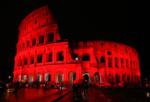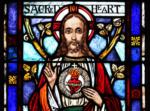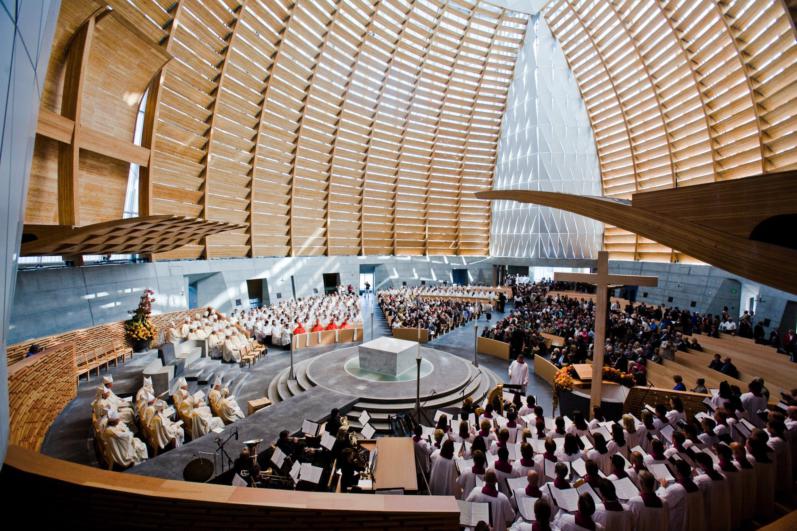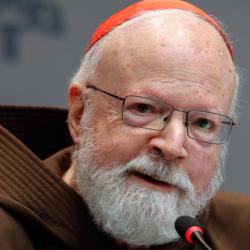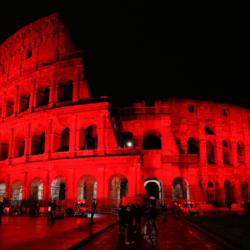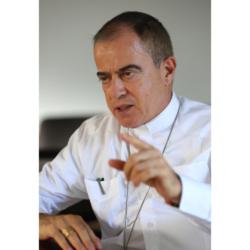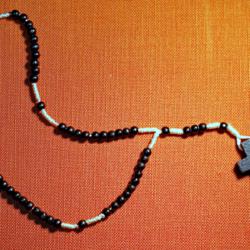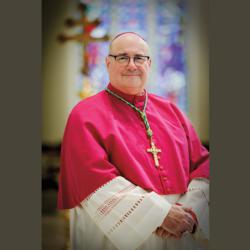Deluged by more than 330 abuse claims, Oakland Diocese files for bankruptcy
News) -- The Diocese of Oakland, California, has filed for Chapter 11 bankruptcy to address more than 330 lawsuits from survivors of alleged clerical sexual abuse.The decision was made after "considerable consultation and much prayer," Bishop Michael C. Barber, a Jesuit, wrote in a May 8 letter to diocesan Catholics announcing the filing.Most of the related claims of abuse date from the 1960s through the 1980s, with only three cases alleged to have occurred in the last two decades, the diocese noted on a dedicated webpage detailing the bankruptcy filing."While these are 'old' cases, for some survivors of abuse, the pain of abuse does not subside and can be as immediate as when the abuse occurred," the diocese stated. "They are not at fault. Those individuals who perpetrated these grievous sins and crimes brought us to where we are today."Several California dioceses have filed or announced possible filings of bankruptcies in recent months, due to a three-year window opened by that state in its statute of limitations.The Diocese of Santa Rosa, facing more than 130 sexual abuse lawsuits, filed for Chapter 11 bankruptcy March 13, following a Dec. 2, 2022, announcement by Bishop Robert F. Vasa.The San Diego and Sacramento dioceses have stated they are considering bankruptcy filings as well. The San Diego Diocese filed for bankruptcy in 2007, following a similar lifting of the statute of limitations in California. The motion was successfully dismissed after the diocese paid out $198 million to settle 144 claims.In his letter, Bishop Barber assured Catholics the diocese would "continue to provide the essential services and support." He said the filing would not impact diocesan schools, Catholic Charities, the Society of St. Vincent de Paul or the diocesan Catholic cemeteries.Parishes, although legally part of the filing, "will continue to celebrate Mass and other sacraments, and provide religious education," wrote Bishop Barber. "Employees will be paid as usual, and their benefit programs will continue uninterrupted."
At the same time, Bishop Barber said he and diocesan pastors, with whom he met May 9, would undertake a "mission alignment process" that would determine how to "address the current reality" in the diocese -- specifically, a "dual challenge of declining engagement by Catholics and a decline in priestly and religious vocations."With Mass attendance down almost 50% since 2010, and 25% fewer priests since 1985, the effort will require the diocese "to close some of our worship sites and re-imagine how we use other locations," said Bishop Barber.In a May 8 release, SNAP (Survivors Network of those Abused by Priests) said the Oakland Diocese's Chapter 11 filing was "an attempt to deny justice and transparency" by preventing accused clergy from "testifying under oath."The group called on federal lawmakers to examine all U.S. diocesan bankruptcies closely, calling them a "charade," adding the Oakland Diocese should be forced to "confront these cases one at a time so that juries can hear the evidence and the testimony of victims, decide the harm, and award just damages."As of May 2023, 33 U.S. Catholic religious organizations have sought Chapter 11 protection, according to Marie Reilly, a professor at Penn State Law and an expert in bankruptcy and commercial law. Twenty-four cases have concluded, while 10 are pending. - - - Gina Christian is a national reporter for OSV News. Follow her on Twitter at @GinaJesseReina - - -BRIEF: OAKLAND, Calif. (OSV News) -- The Diocese of Oakland has filed for Chapter 11 bankruptcy to address more than 330 lawsuits from survivors of alleged clerical sexual abuse. The decision was made after "considerable consultation and much prayer," wrote Bishop Michael C. Barber, a Jesuit, in a May 8 letter to diocesan Catholics announcing the filing. Most of the related claims of abuse date from the 1960s through the 1980s, with only three cases alleged to have occurred in the last two decades, the diocese noted on a dedicated webpage detailing the bankruptcy filing. Parishes, although legally part of the filing, "will continue to celebrate Mass and other sacraments, and provide religious education," wrote Bishop Barber. "Employees will be paid as usual, and their benefit programs will continue uninterrupted." At the same time, Bishop Barber said he and diocesan pastors, with whom he met May 9, would undertake a "mission alignment process" that would determine how to "address the current reality" in the diocese -- specifically, a "dual challenge of declining engagement by Catholics and a decline in priestly and religious vocations." Several California dioceses have filed or announced possible filings of bankruptcies in recent months, due to a three-year window opened by that state in its statute of limitations. The Diocese of Santa Rosa, facing more than 130 sexual abuse lawsuits, filed for Chapter 11 bankruptcy on March 13, following a Dec. 2, 2022 announcement by Bishop Robert F. Vasa. The San Diego and Sacramento dioceses have stated they are considering bankruptcy filings as well.




